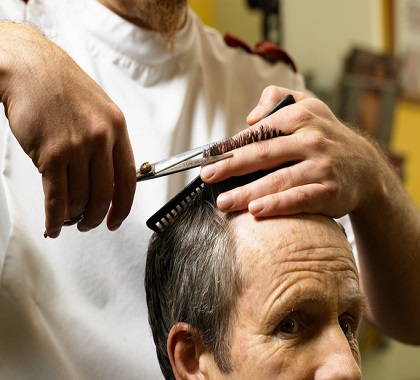Occupational licensing reform is gaining traction. Several states are considering bills that would reduce or eliminate licensing laws’ vast restrictions, which prevent many low- and middle-income people from entering numerous industries. Many of these bills would also place the burden on occupational licensing review boards to prove the government regulations they seek to impose are necessary and more appropriate for a particular occupation than non-government, voluntary alternatives, such as third-party certification, consumer evaluations, or market competition.
Given the origins and consequences of licensing laws, these reform initiatives are an overwhelmingly positive development. Far-reaching licensing laws often produce vast negative economic effects. When a state imposes a burdensome and excessive licensing regime, the costs of goods increase. Furthermore, less business competition and entrepreneurship leads to fewer jobs, and services that are lower-quality, less accessible, and more expensive. In most cases, these rules are needless and counterproductive, because government involvement guarantees neither better nor safer services.
Another frequently ignored aspect of occupational licensing laws is their protectionist origins. Industry leaders and lobbyists, not consumers, campaign for and urge legislators to create licenses that keep out new competitors who may not have the time or money to acquire licenses. A wide variety of industry associations—including medicine, cosmetology, and music therapy—have long lobbied for ever-stricter regulation and licensing laws.
Consumers, entrepreneurs, and workers alike pay for these rules and regulations. Simply put, occupational licenses increase the costs for goods and services, impede business and wealth creation, and apply to occupations that pose little to no harm on public health and safety.
Advocates of occupational licensing contend these regulatory schemes are needed to ensure safe products and reliable services, but there is rarely a connection between licensing laws and the quality of goods and services and no shortage of ridiculous occupational licensing edicts for completely harmless professions. For instance, 27 states impose onerous regulations on the innocuous trade of African hair braiding, stifling opportunities and driving up costs. In Louisiana, hair braiding licensure has unnecessarily reduced the market for this common service. This is evident when comparing the hair braiding industry in neighboring Mississippi. Although Louisiana has a substantially larger black population than Mississippi, Louisiana has just 32 registered hair braiders compared to 1,245 in Mississippi, where no training hours are required.
Nebraska led the pack among states in the spring 2018 legislative session in passing licensing reform laws. Nebraska lawmakers eliminated red tape for several occupations, including school bus drivers, animal massage practitioners, cosmetologists and barbers, and emergency medical technicians. Other reform measures have been introduced in California, Indiana, Kansas, and Ohio.
In recent decades, government licensing laws have grown tremendously. Today, more than 1,100 occupations are subject to burdensome regulations, and 25 percent of the workforce is now compelled to acquire expensive government permission slips just to practice their craft, no matter how time-consuming and absurd it may seem. Moreover, there is a documented connection between licensing laws and higher economic costs, which come in a trifecta of lost jobs, decreased services, and increased prices.
Occupational licensing schemes are often used to promote crony capitalism, protecting well-connected special interests and harming consumers and jobseekers. States should examine their current occupational licensing laws and eliminate all their superfluous rules and regulations. This would create an economic environment for existing industries to expand and new businesses to open, thereby benefiting the very groups occupational licensing laws are actually supposed to help: consumers and jobseekers.
What We’re Working On
Energy & Environment
Public Policy and Coal-Fired Power Plants
In this Policy Study—the third in a series of four—Center of the American Experiment Policy Fellow Isaac Orr and Heartland Institute Senior Fellow Fred Palmer discuss how the premature retirement of coal-fired power plants increases electricity prices for consumers. They argue premature retirement of coal-fired power plants will cost consumers billions of dollars in the form of higher electricity prices, regulatory compliance costs, subsidies for renewable generation technologies, construction of unneeded electricity generation capacity and transmission lines, and lost economic opportunities, especially in energy-intensive industries like manufacturing. They also discuss how state renewable energy mandates and federal subsidies given to renewable energy industries, primarily wind and solar, distort wholesale power markets to the detriment of coal-fired power plants, and they explain the real-life impacts these policies have on families, businesses, manufacturers, and coal mining communities.
Education
School Safety Data Underscore the Need for Child Safety Accounts
In this Research & Commentary, Policy Analyst Tim Benson highlights new public school climate and safety data from the Department of Education, which found there were nearly 1.1 million “serious offenses”—including assault, sexual assault, rape, attempted rape, and robbery—during the 2015–16 school year on school grounds, roughly one for every 50 students that attend public schools in the United States. He argues this data reveal the pressing need for states to adopt Heartland’s Child Safety Accounts (CSAs), for which students would be eligible if their parents had a “reasonable apprehension” for their children’s physical or emotional safety based on the experiences of their children, including bullying, hazing, or harassment. A CSA program would empower parents to transfer their children immediately to the safe schools of their choice within or beyond their resident public school districts—including public district, charter, and virtual schools—as well as private and parochial schools.
Health Care
North Carolina Needs to End Certificate of Need’s Obstruction of Health Care
In this Research & Commentary, Senior Policy Analyst Matthew Glans examines the need for certificate of need repeal or reform in North Carolina. “North Carolina’s CON laws are a destructive form of crony capitalism and a shining example of the failures of government intervention. They increase the cost of health care and limit access and innovations. It’s time for North Carolina, as well as all states with CON laws, to end these burdensome regulations and embrace free-market, pro-liberty health care reforms,” wrote Glans.
Budget & Tax
Expanding Internet Sales Taxes in Hawaii Would Be Bad For Taxpayers
In this Research & Commentary, Senior Policy Analyst Matthew Glans examines a new proposal in Hawaii that would require all online retailers to pay state sales taxes, regardless of whether the seller has a presence in the state. “Instead of forcing out-of-state businesses to serve as government tax collectors, state legislators should implement a sales tax system based on where the product was sold, known as an origin-based tax system. This would truly level the playing field because online and brick-and-mortar retailers would pay the same tax,” wrote Glans.
From Our Free-Market Friends
Kansas House Socks Citizens with Another Tax Increase
The Kansas House of Representatives has recently voted to usher in another $210 million income tax increase over the next two years. Many of the legislators voting in favor of the tax said they wanted to further fund public schools, which currently receive $818 million. They also claim income taxes in the state are lower than what they were in 2012. Just last year, the legislature agreed to a $1.2 billion tax increase and, subsequently, the state set a new spending record. The Kansas Policy Institute contends raising taxes to increase government spending would harm the state’s business climate and individuals of all income levels.
Click here to subscribe to The Leaflet, the weekly government relations e-newsletter.




